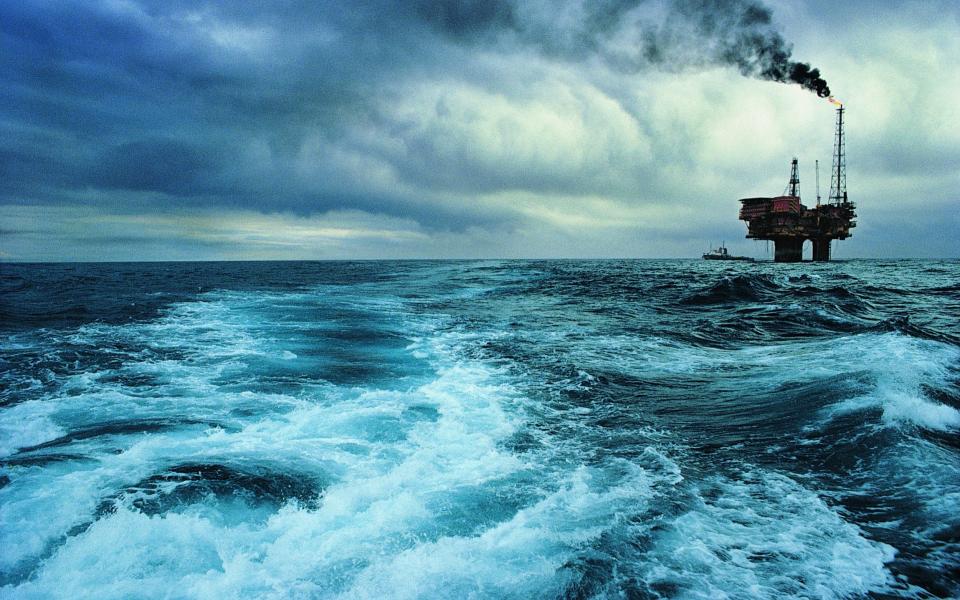Shell and BP try to go green

Throughout the 1980s, new traders at JP Morgan in New York were all told the same joke by the manager running their induction.
As they were handed manuals to get them up to speed on the various types of industries they might be investing in, the manager would remark that the book on oil markets was the only one that hadn’t changed in over 100 years.
And there was some truth to that. The process by which oil was extracted, refined, and sold had remained fairly constant.
So when BP’s incoming boss Bernard Looney took charge of the 111-year-old company in February, and promised to “reinvent” the oil titan, his words carried some historic weight.
Albeit, the admission that BP, in its current form, was facing extinction came as little surprise to investors, analysts or the public.
In recent years, Europe’s oil majors have publicly recognised the winds of change blowing through their industry.
How could companies that made the overwhelming majority of their profits from oil survive in a world where oil would likely be regulated out of existence over time?
In perhaps the most stark example of this, last October BP’s chief financial officer acknowledged that there was an 80pc overlap between the stated aims of Extinction Rebellion, the provocative action group, and BP.

Even privately, oil giants such as Shell and BP have been grappling with the broader existential question of their purpose for years.
Now, with Covid-19 further hammering oil companies around the world, the reinvention of these businesses is no longer theoretical. It is happening in real time.
In the past two weeks, both BP and Shell have announced that they are writing down the value of their assets by a combined total of nearly $40bn - a clear sign that they believe the golden days of oil are gone.
The pandemic has created a window of opportunity, climate activists say, to force through structural changes to the energy sector that could set up Britain for a world without fossil fuels.
This vision of a carbon-free country leaves little room for oil companies.
“We have reset our price outlook to reflect that impact and the likelihood of greater efforts to ‘build back better’ towards a Paris-consistent world,” Looney said as he announced the writedown, in a reference to the 2015 Paris climate agreement.
“Build back better” has become the rallying cry of those who are pushing for a new system to be born out of the ashes of the industry.
So how can BP and Shell play a part in this process of reassembly?
While BP has so far revealed few details about its strategy to survive the move away from oil, Shell has been less circumspect.
“We believe we can be the largest electricity power company in the world in the early 2030s,” said Maarten Wetselaar, director of Shell’s new energies division, on Bloomberg TV last year.
In this iteration of the 113-year-old company, Shell believes it can become the world’s biggest power company by focusing primarily on natural gas and renewable energy.
The company is betting on the growth of electric vehicles and smart homes, and on customers who demand that their electricity is generated by renewable sources such as solar and wind power.
“All of these technologies and solutions exist, but offering all of these things as a package doesn’t,” says Tom Heggarty, a solar analyst at consultant Wood Mackenzie. “There are not many companies with the balance sheet that would make all the investments that you need to do that, and that seems to be the way that Shell is going.”
Shell believes that with the government-mandated restructuring of carbon-intensive businesses on the horizon, it can still appeal to investors, and offer healthy returns, with a new model.
BP has also seen this tidal wave of change coming.
The company said earlier this month that it had sharply increased the price it believes it will be forced to pay governments for its carbon dioxide (CO2) emissions.
Previously, it estimated that it would be required to pay $40 per tonne of CO2 but that has more than doubled to $100, as more governments argue that higher taxes are the only way to stop the use of fossil fuels.

It also said it would axe more than 10,000 jobs this year in response to low oil prices and the group’s shift towards clean energy.
“In the longer term, this is about BP’s strategic shift away from oil and gas,” says Luke Parker, another analyst at Wood Mackenzie.
“While that will be a multi-decade affair, BP is already getting to grips with the idea that its upstream assets are worth less than it believed as recently as six months ago. Indeed, some of them are worth nothing.”
In a bid to signal how committed both companies are to changing their businesses, Shell and BP now have a slate of upcoming renewable projects in the works.
BP has solar parks under development across the US, while Shell has wind farms in Holland and the UK that will come online over the next two years.
But not all are convinced.
“There are clearly areas within the new energy system where oil companies have an advantage and it makes sense to deploy capital – but we do not think large scale renewable power generation is one of them,” says Nick Stansbury, a fund manager at Legal & General.
“In our view the most shareholder-friendly option is to make a commitment now to a managed decline.”

 Yahoo Finance
Yahoo Finance 